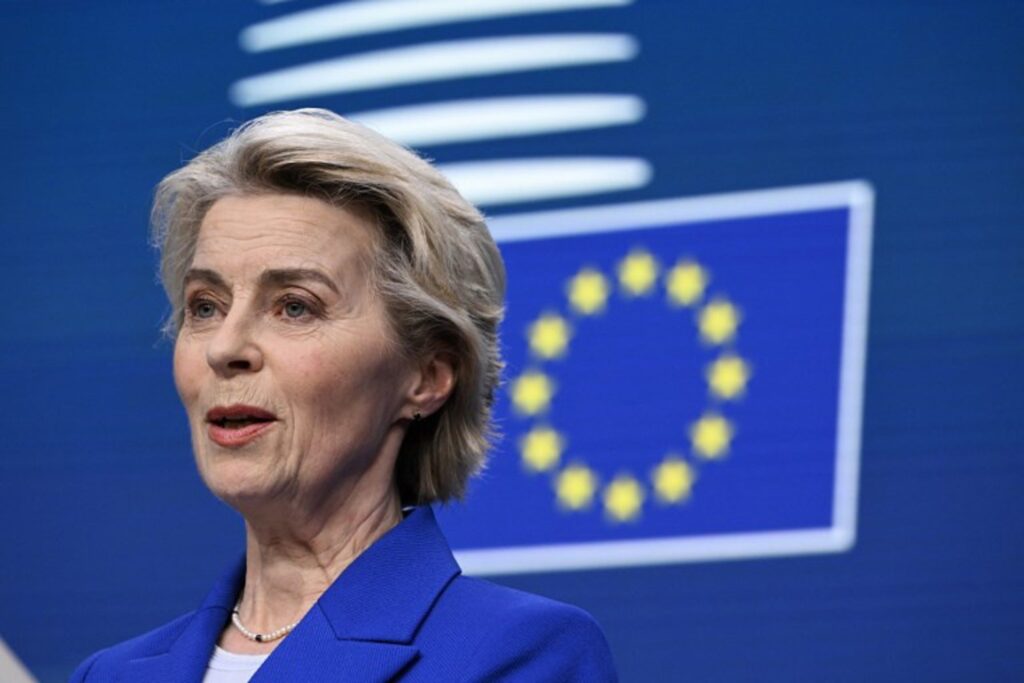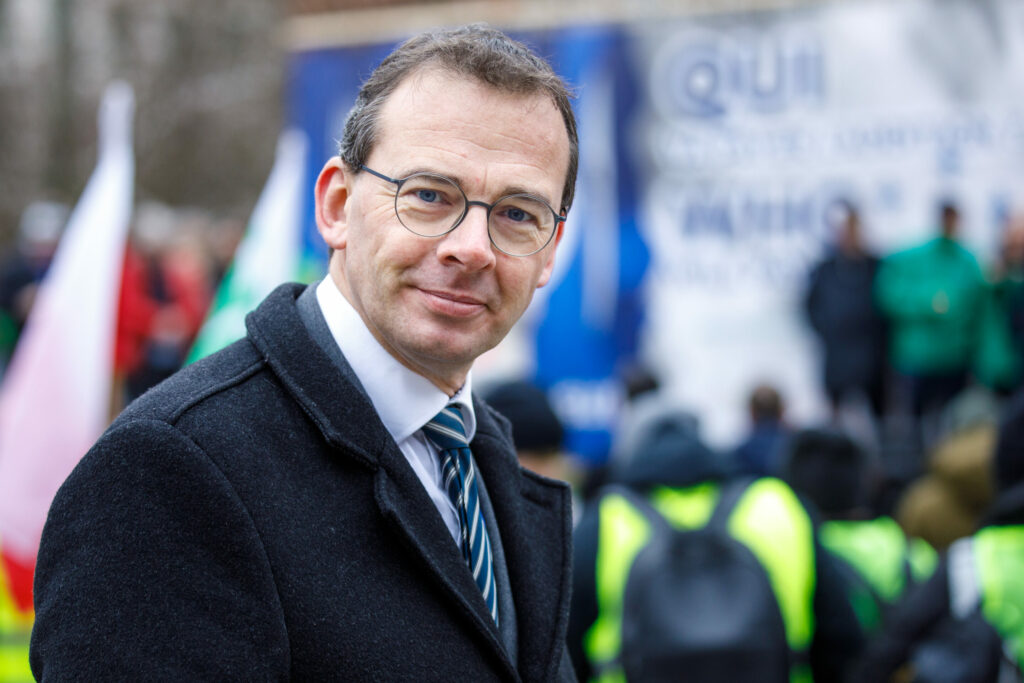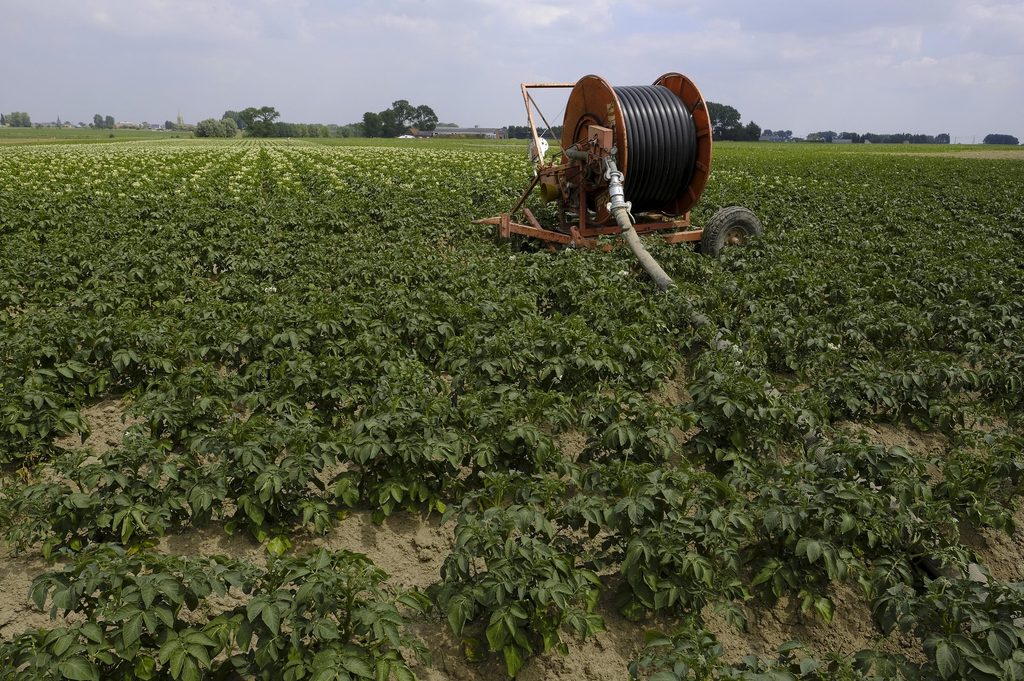The European Commission presented its new agricultural strategy to make the sector more resilient and attractive on Wednesday. It wants to work on fair prices and strengthening rural regions, among other things.
The College of EU Commissioners on Wednesday agreed on the ‘Vision for Agriculture and Food’, with a vision for 2040. It is one of the priorities put forward by the new European Commission for the first 100 days of the legislature. The agreement is also a response to last year's farmers' protests, including in Brussels.
The plan is built around four priorities. First of all, the sector must become "more attractive and sufficiently stable" so that young people are encouraged to choose a profession in the agri-food sector. It wants to work towards a fair income, with farmers no longer systematically having to sell products below the cost of production. They will also receive improved targeted public support.

President of the European Commission Ursula von der Leyen speaks during a press conference following the European Council meeting at the EU headquarters in Brussels on 19 December 2024. Credit: Belga / AFP
Secondly, the sector must remain "competitive and resilient". In doing so, the Commission is committed, among other things, to better align production standards for imported products so that EU standards do not create a competitive disadvantage. This year, it will review what the impact of stricter import rules for pesticides and animal welfare-based rules would be.
A third priority is "aligning climate policy and agricultural policy". For example, the Commission wants farmers who adopt environmentally friendly practices to be rewarded, and wants to give the sector better access to biopesticides. There will also be a plan to make water use more efficient.
Finally, the Commission wants "better living and working conditions in rural areas," which are crucial for the European agricultural sector.
Agriculture is a key player
"The agri-food sector needs to thrive and compete in a fair global market, with sufficient resilience to deal with crises and shocks," said European Commissioner for Agriculture and Food Christophe Hansen.
"The roadmap will make the sector more sustainable and ensure that agriculture remains an attractive and rewarding sector so that young people choose the profession. And it will ensure that agriculture remains a key player in tackling the effects of climate change."
Hansen insisted on the importance of a tailor-made approach and consultation with all stakeholders. He also backed up his argument of the need for rejuvenation in the sector with figures: in the EU, less than 12% of farmers are under 40 and the average age in the EU is 57.
Later this year, Hansen will propose a plan to remove generational barriers. This will also look at Member States, which can create tax incentives.

MEP Wouter Beke (CD&V) pictured during a protest action of the Federation Wallonne de l'Agriculture (FWA) and the Union des Agricultrices Wallonnes (UAW). Credit: Belga/Hatim Kaghat
In spring, the Commission will also propose a simplification package within the framework of the Common Agricultural Policy (CAP). "We will further lighten the burden of regulation so farmers can focus on their production instead of paperwork," Hansen said.
Additionally, he will work with his colleagues to see whether reporting obligations, including those not linked to the CAP, can be eased, for example. The Commission is also looking ahead to the CAP review, as part of the negotiations on the future multi-annual budget from 2028. This would become simpler, with more targeted support to those farmers most in need.
Belgian MEP Wouter Beke (CD&V) speaks of an "ambitious plan that rightly puts the focus on the attractiveness of agriculture, predictable policy, a good income for the farmer, equal trade standards and room for innovation".
He calls the Commission's explicit willingness to support the use of RENURE or fertiliser substitutes a "very positive point". However, he worries that the vision does not answer the concrete challenges of Flemish agriculture, such as stifling environmental legislation and burdensome authorisation procedures. "That is why I continue to push for targeted measures that remove these obstacles."

